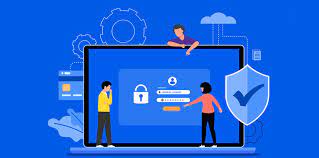Introduction
In today's digital age, where cyber threats are prevalent, ensuring the security of your website has become more critical than ever. A breach in your website's security can lead to data theft, financial loss, and damage to your reputation. To protect your website and its users, it's essential to implement robust security measures. In this blog post, we will explore ten efficient ways to boost the security of your website in 2021, helping you safeguard your online presence.
Keep Software and Plugins Up to Date
Regularly updating your website's software, including your content management system (CMS) and plugins, is crucial. Updates often contain security patches that address vulnerabilities, protecting your website from potential attacks. Set up automatic updates whenever possible, and regularly check for new releases and patches to ensure you're running the latest, most secure versions.
Implement Secure Password Policies
Weak passwords are an open invitation for hackers. Encourage your users to create strong passwords that include a combination of upper and lowercase letters, numbers, and special characters. Additionally, enforce password change policies periodically to prevent the use of compromised credentials. Consider implementing multi-factor authentication (MFA) to add an extra layer of security.
Use SSL/TLS Certificates
Secure Socket Layer (SSL) or Transport Layer Security (TLS) certificates encrypt the connection between your website and its visitors, protecting sensitive data during transmission. Having an SSL/TLS certificate in place is crucial, as it not only secures data but also boosts your website's credibility. Ensure that all pages of your website, not just the login and checkout pages, are served over HTTPS.
Regularly Backup Your Website
Performing regular backups of your website is a vital security measure. In the event of a security breach or accidental data loss, backups enable you to restore your website to a previous state. Automate the backup process and store backups securely offsite or in the cloud. Verify the integrity of your backups periodically to ensure their reliability.
Secure File Uploads
File upload forms can be exploited to upload malicious files to your website, compromising its security. Implement strict file upload restrictions, such as limiting file types and sizes, and validate user inputs to prevent malicious code execution. Store uploaded files in a separate directory with restricted permissions to minimize the potential impact of an attack.
Implement Web Application Firewalls
Web Application Firewalls (WAFs) act as a protective barrier between your website and potential threats. They analyze incoming traffic, detect and block malicious requests, and filter out common attack patterns. Deploying a WAF can significantly enhance your website's security by mitigating the risk of common vulnerabilities like SQL injections and cross-site scripting (XSS) attacks.Conduct Regular Security Audits
Periodic security audits help identify vulnerabilities and potential weaknesses in your website's security. Perform comprehensive assessments, including vulnerability scanning, penetration testing, and code reviews. Engage the services of a professional security firm or utilize automated tools to identify potential risks. Regular audits enable you to proactively address security issues before they are exploited.
Secure Error Handling and Logging
Proper error handling and logging practices contribute to website security. Avoid displaying detailed error messages to users, as they may reveal sensitive information. Instead, implement custom error pages with limited information. Log errors and system activities to monitor for suspicious behavior and identify potential security incidents. Regularly review logs for anomalies and respond promptly to any security alerts.
Protect Against Cross-Site Scripting (XSS) Attacks
Cross-Site Scripting (XSS) attacks can inject malicious code into your website, compromising user data and facilitating further attacks. To protect against XSS attacks, sanitize and validate user inputs, encode data appropriately, and implement strict content security policies. Regularly scan your website for vulnerabilities and employ security plugins or libraries to fortify your defenses.
Educate Your Users
User education plays a crucial role in maintaining website security. Raise awareness about common security risks, such as phishing attempts, social engineering, and password best practices. Encourage users to report suspicious activities and provide them with resources to enhance their own cybersecurity knowledge. Regularly communicate updates and security practices to your users to keep them informed and engaged.
Conclusion
As cyber threats continue to evolve, it is imperative for website owners to prioritize security. By following these ten efficient ways to boost the security of your website in 2021, you can significantly reduce the risk of potential attacks and safeguard your website and its users. Remember, investing in security measures today will save you from potentially catastrophic consequences in the future. Stay proactive, stay informed, and keep your website secure in the ever-changing digital landscape.


No comments yet